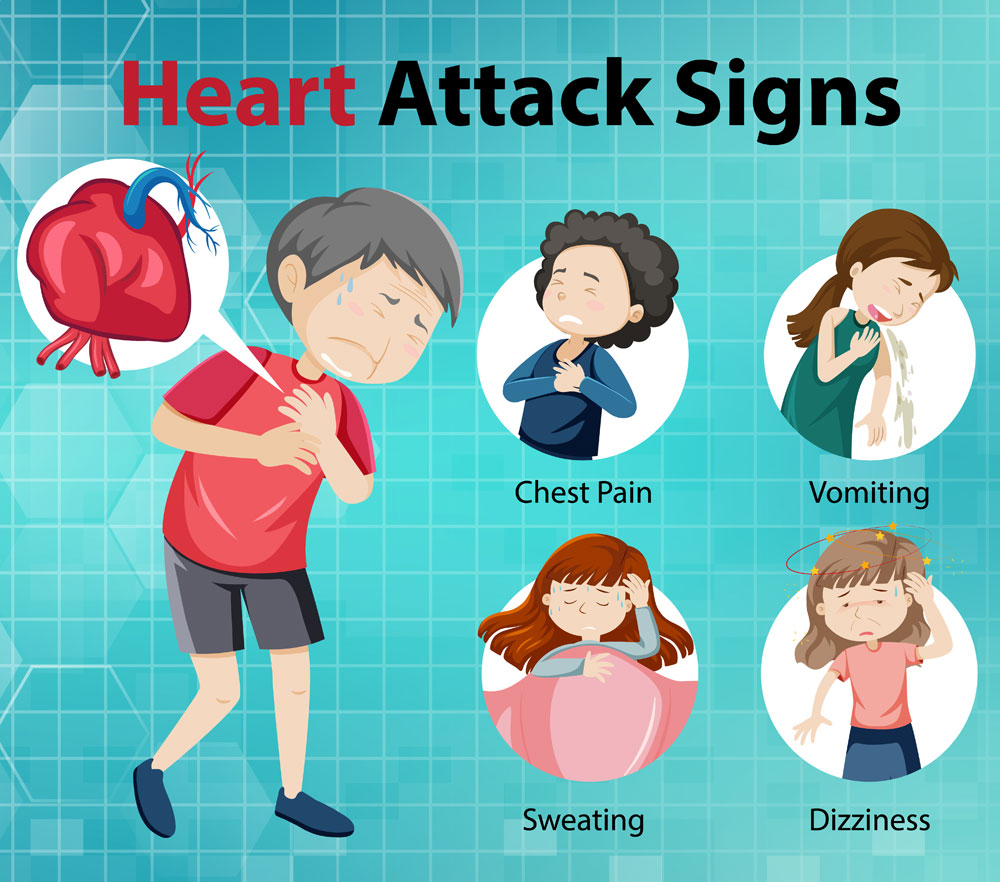
Symptoms and precautions to be taken to avoid heart strokes
Symptoms and precautions to be taken to avoid heart strokes
A heart stroke, also known as a stroke or a cerebrovascular accident, occurs when the blood flow to the brain is interrupted. The symptoms of a heart stroke can vary depending on the severity of the stroke and the area of the brain that is affected. However, some common symptoms include:
Sudden numbness or weakness in the face, arm, or leg, especially on one side of the body
Sudden confusion, trouble speaking or understanding speech
Sudden trouble seeing in one or both eyes
Sudden severe headache with no known cause
Sudden trouble walking, dizziness, loss of balance or coordination
Precautions that can be taken to avoid heart strokes include:
1. Eating a healthy and balanced diet: This includes consuming plenty of fruits, vegetables, whole grains, and lean protein. It is also important to limit the intake of saturated and trans fats, as well as salt and sugar.
2. Exercising regularly: Engage in regular physical activity such as walking, running, cycling, swimming, or any other form of moderate to vigorous physical activity for at least 30 minutes a day, five times a week.
3. Maintaining a healthy weight: Being overweight or obese increases the risk of heart disease and stroke, so it is important to maintain a healthy weight.
4. Quitting smoking: Smoking increases the risk of heart disease and stroke, so quitting smoking is an important step in reducing the risk.
5. Limiting alcohol consumption: Heavy drinking can increase the risk of heart disease and stroke, so it is important to limit alcohol consumption to no more than two drinks per day for men and one drink per day for women.
6. Controlling high blood pressure: High blood pressure is a major risk factor for heart disease and stroke, so it is important to monitor blood pressure regularly and take medication as prescribed by a doctor.
7. Managing diabetes: Diabetes increases the risk of heart disease and stroke, so it is important to manage blood sugar levels and follow a healthy lifestyle.
8. Managing stress: Stress can contribute to high blood pressure and other risk factors for heart disease and stroke, so it is important to find ways to manage stress, such as through meditation, exercise, or relaxation techniques.



0 comments